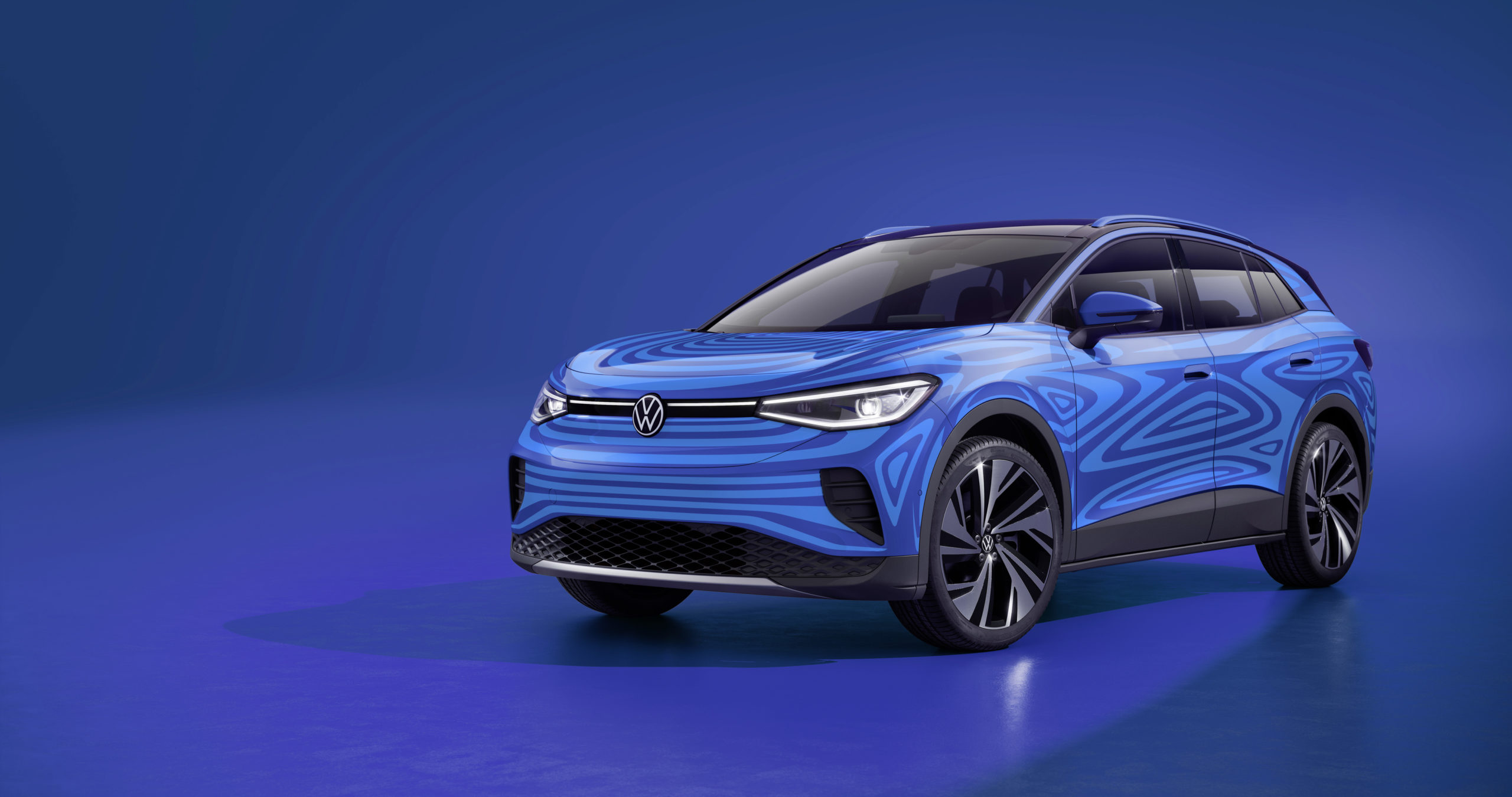- Following the ID.3, the second model in the ID. family goes into series production
- Carbon-neutral production of Volkswagen’s first all-electric SUV in Zwickau
- Ralf Brandstätter, Volkswagen brand CEO: “With the ID.4, Volkswagen is adding an all-electric vehicle to its offering in the compact SUV class, the world’s largest growth segment.”
Bengaluru, NFAPost: Volkswagen’s electric offensive continues to gather speed as the company started production of the brand’s first all-electric SUV, the ID.4, in Zwickau.
The world premiere of the ID.4 follows at the end of September. Volkswagen is thus underscoring its ambition to become the world market leader in e-mobility.
To this end, the Group is investing some €33 billion in the period to 2024, €11 billion of which have been earmarked for the Volkswagen brand. The brand expects to produce 1.5 million electric cars in 2025.
Commenting on the development, Volkswagen Brand CEO Ralf Brandstätter said with the ID.4, Volkswagen is adding an all-electric vehicle to its offering in the compact SUV class, the world’s largest growth segment.
“Following the ID.3, this is already the second model based on the modular electric drive matrix (MEB). Going forward, the car will be built and sold in Europe, in China, and later also in the USA. That is how we are scaling the MEB platform globally and laying the economic foundations for the success of our ID. family,” said Volkswagen Brand CEO Ralf Brandstätter.
Volkswagen Board Member for E-mobility Thomas Ulbrich, said the company is right on schedule with the Volkswagen brand’s transformation process to e-mobility.
“The ID.3 is now being followed by the ID.4. Given the major societal challenges of recent months, the successful start of ID.4 series production is an exceptional achievement, so my appreciation and thanks go especially to the Volkswagen team in Saxony and all members of the ID team. The second model in the ID. family is already rolling off the assembly line where, only recently, ICEs were still being built,” said Volkswagen Board Member for E-mobility Thomas Ulbrich.
Zwickau plays a key role in the system changeover to e-mobility: For the first time, a large car manufacturing plant is being entirely converted to e-mobility, with investments running at some €1.2 billion. All conversion work will be completed as scheduled this year. In 2021, the first full production year as an EV factory, some 300,000 electric vehicles based on the modular electric drive matrix (MEB) will leave the Zwickau plant.
The site will therefore become largest and most efficient EV factory in Europe and a trailblazer in the transformation of Volkswagen’s global production network. Preparations to roll out the electric SUV at international level are also in full swing. Pre-production of the ID.4 has already started at the Anting plant in China, the Chattanooga site will start the ID.4 production in 2022.
Volkswagen’s first all-electric SUV
The ID.4 is based on Volkswagen’s modular electric drive matrix (MEB). This is an all-electric platform that maximizes the opportunities offered by e-mobility. With its low drag coefficient of 0.28 and scalable battery system, the ID.4 can cover over 500 kilometers (to WLTP). The vehicle also offers plenty of interior space, and the powerful proportions lend an ultra-modern look to the exterior.
The SUV will initially be launched with rear-wheel drive, while an electric all-wheel drive version will be added a later date. The high-voltage battery is positioned in the sandwich-design underbody to create an optimum, low centre of gravity in terms of driving dynamics, along with an extremely well-balanced axle load distribution.
Like all models based on the new modular electric drive matrix (MEB), the ID.4 will be very spacious thanks to its compact electric drive technology. The cockpit of the zero-emission SUV is clearly structured and consistently digitalized; operation is largely via touch surfaces and intuitive voice control.
Carbon-neutral production of the ID.4
For Volkswagen, the ID.4 and ID.3 are important milestones as the brand sets its course toward complete carbon neutrality by 2050 – aligned with the climate goals of the Paris Agreement.
Like the ID.3, its sister model the ID.4 electric SUV sets new benchmarks in sustainability: Production in Saxony is carbon-neutral and the electric SUV will be handed over to customers with a carbon-neutral footprint. Green power is exclusively used in energy-intensive battery cell production for the ID.4.
German automotive manufacturing
With its resolute entry into e-mobility, Volkswagen is making an important contribution to climate protection and thereby creating long-term perspectives for some 100,000 employees at its German plants.
Apart from manufacturing at the Zwickau factory, the Components plants in Brunswick, Kassel, Salzgitter and Wolfsburg are also involved in the production of electric vehicles. They manufacture key components such as the electric motors or the battery systems.
The ID.3 will also be built at the Gläserne Manufaktur in Dresden from 2021. The car manufacturing plants in Emden and Hanover are scheduled to begin building electric vehicles from 2022.
1) ID.3: power consumption in kWh/100 km (NEDC): 15.4 – 14.5 (combined); combined CO2 emissions in g/km: 0; efficiency class: A+.
2) ID.4 The vehicle is not yet available for sale in Europe.
Volkswagen, a leading carmaker in Europe, sells its broad model range, from the Up! to the Touareg, in more than 150 countries worldwide. The brand, globally, is forging ahead consistently with the further development of automobile production.
E-mobility, smart mobility and the digital transformation of the brand are the key strategic topics for the future. In 2019, the brand unveiled its first ever e-mobility offering ID.3 for the European market, based on Volkswagen’s MEB platform. In India, Volkswagen currently offers the Polo, Vento, T-Roc and Tiguan AllSpace.





